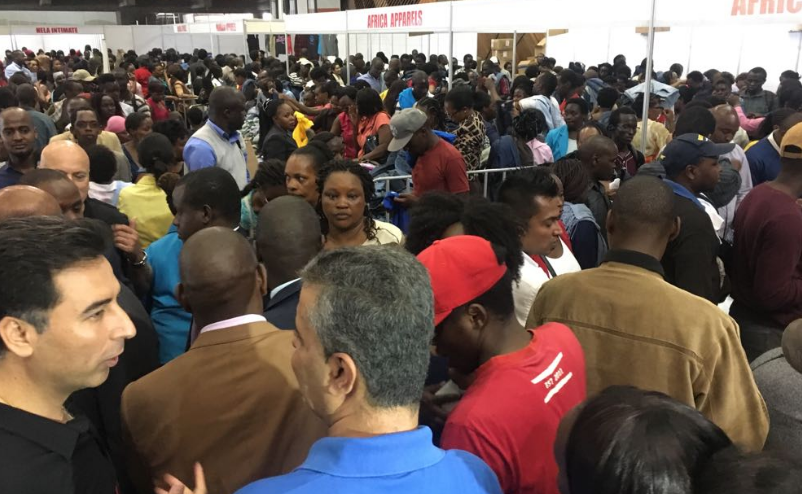NAIROBI, Kenya, Mar 4 – This past week, the Kenyatta International Conference Centre has been a beehive of activity as more than 50,000 Nairobi residents queued for hours to buy top international brands made in Kenya in the first ‘super sale’.
The four-day sale was an initiative of the Ministry of Industry, Trade and Investment in partnership with Textile and Apparel Firms under the Export Processing Zones programme.
The super sale allowed Kenyans to buy original international fashion brands including Victoria Secrets, Tommy Hillfiger and Calvin Klein among others.
Products were priced between Sh100 and Sh600 for items that cost Sh4,000 to Sh8,000 in international markets.
Industrialization and Trade Cabinet Secretary said the sale was initiated to test whether there is an appetite for such products in a country that has for far too long been flooded with second-hand clothes.
“We were so pleasantly surprised at one, the level of demand that people have for these products, the interest and the desire and the satisfaction that people got. People were queuing for more than six hours to get into the KICC center to actually buy a piece of jeans or a blouse or a top or an innerwear and in those four days over 50,000 garments have been sold,” he said.
The country exports more than US$400million – Sh. 40 billion – per year to the US under the AGOA program, with the government saying it intends to exceed a billion dollars in the next two to three years.
“We also want to sell Sh8 billion worth of textiles and fabrics into the domestic market per year,” Mohamed said of the ‘Buy Kenya, Build Kenya’ initiative.
This will be possible following the agreement that has been effective for the last twelve months allowing EPZ companies that are exporting fabric to sell up to 20 percent of their produce into Kenya.
The employment creation potential that the textile sector has is one of the reasons the ministry has placed emphasis on the sector.
Additionally, the sector has also built experience and made the export market available to Kenya.
According to the CS, tax legislation, for instance, has caused hurdles for countries planning to tap the export market. But the changes in legislature and policy are now favoring the domestic market.
“The threat that many African countries, including Kenya, suffer from is that we do produce things, but sometimes these things are unavailable to the domestic market. Where there is access, there’s also second-hand products which come in to compete with new products that are usually more pricey.”
The super sale is currently ongoing at the Thika Road Mall, with plans of taking it to other counties in the pipeline
“We are planning to do one in Mombasa, Meru and another one in Eldoret. That is going to happen and I think residents of these towns and its environs will get sufficient notice in actually being able to access this.”
Mohamed also urged wholesalers, especially those involved in the Mitumba sector, to go to EPZ factories directly, buy and sell these products through their established value chains and supply chains that they have been using for very many years.



































